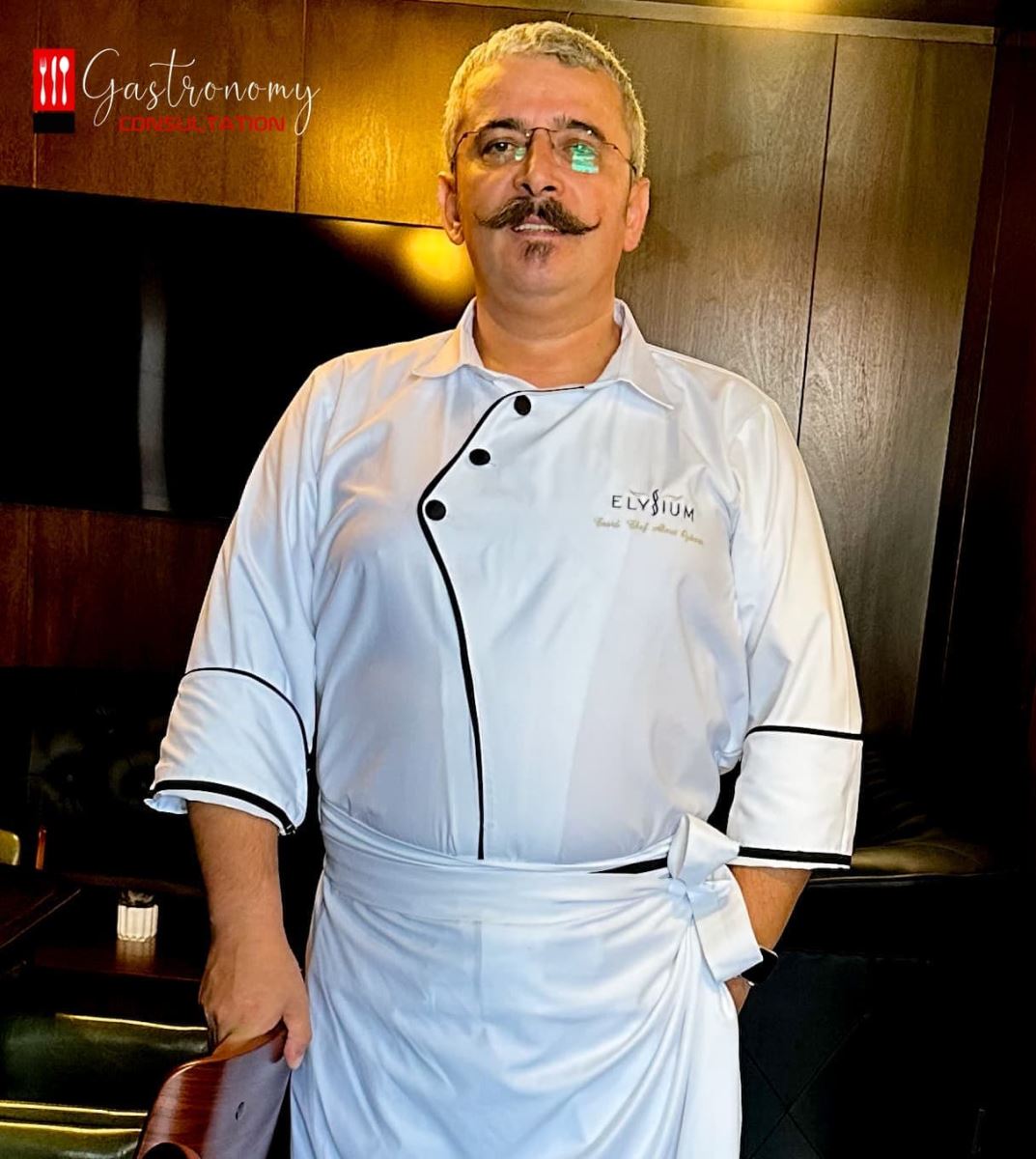This discipline includes a combination of various disciplines such as chemistry, physics, biology and culinary science. For example, techniques such as the use of liquid nitrogen, emulsions, gelling, emulsification, spherification are examples of molecular gastronomy. It also explores topics such as molecular gastronomy, aroma chemistry, flavor perception, interactions of food ingredients. Molecular gastronomy provides creative and innovative food presentations..
10/12/2021
 What is Molecular Gastronomy?
What is Molecular Gastronomy?
Coord. Chef Ahmet ÖZDEMİR
Molecular gastronomy is a discipline that studies food and cooking processes based on scientific and chemical principles and enhances the dining experience using innovative techniques and methods.
This field uses scientific approaches to understand and modify the chemical and physical properties of food and create new flavors, textures and presentations.
Molecular gastronomy aims to bring a new perspective to traditional dishes by making innovative changes in cooking techniques and the use of ingredients. This offers different experiences such as intensifying flavors, changing textures, making unusual presentations and creating unexpected combinations.
This discipline includes a combination of various disciplines such as chemistry, physics, biology and culinary science. For example, techniques such as the use of liquid nitrogen, emulsions, gelling, emulsification, spherification are examples of molecular gastronomy. It also explores topics such as molecular gastronomy, aroma chemistry, flavor perception, interactions of food ingredients.
Molecular gastronomy offers a scientific and experimental approach while encouraging creativity in cooking and culinary arts. Traditional culinary techniques and scientific principles are combined to create new flavors, textures and presentations. In this way, a deeper understanding of the ingredients, flavors and structure of food can be achieved and creative culinary experiences can be offered.
Where is Molecular Gastronomy Used? What are the Characteristics of Molecular Gastronomy? When Did Molecular Gastronomy Occur?
Molecular gastronomy is used in restaurants, chefs and gourmet cuisine, as well as in research laboratories and the food industry. Below are some of the uses of molecular gastronomy:
Restaurants:
Molecular gastronomy provides creative and innovative food presentations for restaurants. Reinventing food with different textures, presentations and flavors can enrich the gastronomic experience.
Food Industry:
Molecular gastronomy is used in the food industry in the process of product development and creation of innovative products. Designing delicious and healthy food products is an application area of molecular gastronomy.
Food Research:
Molecular gastronomy contributes to food research by examining the chemical, physical and sensory properties of food. It explores topics such as flavor perception, aroma chemistry, interaction and reactions of food ingredients.
Some features of molecular gastronomy are:
Scientific Approach:
Molecular gastronomy adopts an approach based on scientific principles. The main objective is to understand the chemical and physical properties of food and to translate these principles into culinary applications.
Techniques and Methods:
Molecular gastronomy uses innovative techniques and methods. Methods such as emulsions, gelation, spherification, liquid nitrogen are examples of molecular gastronomy.
Creativity and Innovation:
Molecular gastronomy encourages creativity and brings a new perspective to traditional food. It offers innovative experiences such as intensifying flavors, changing textures and extraordinary presentations.
The origin of molecular gastronomy is considered to be a flourishing movement in the late 20th and early 21st centuries. In the mid-1990s, Spanish chef Ferran Adrià and other chefs began applying the principles of molecular gastronomy at the El Bulli restaurant. In this period, the concept of molecular gastronomy became more widespread and attracted worldwide attention. Research and innovations in this field added a new dimension to the world of gastronomy and have become an important discipline for researchers and the food industry as well as restaurants.
What is the Effect of Molecular Gastronomy on Famous Kitchens in the World?
Molecular gastronomy has a significant impact on famous cuisines in the world. Here are some of the effects of molecular gastronomy on famous cuisines:
El Bulli (Ferran Adrià):
Ferran Adrià, one of the most important figures of molecular gastronomy, adopted this new approach in his restaurant El Bulli. With his creative techniques and innovative presentations, he made a huge impact around the world. Until 2011, when El Bulli closed, Adrià and his team were considered one of the pioneers of molecular gastronomy.
Noma (Rene Redzepi):
Located in Copenhagen, Denmark, the Noma restaurant is another famous cuisine that makes you feel the influence of molecular gastronomy. Chef René Redzepi offers innovative and original dishes, combining traditional culinary techniques and local ingredients with a modern approach.
The Fat Duck (Heston Blumenthal):
The Fat Duck restaurant, located in the village of Bray, England, is another important place where molecular gastronomy is effective. Chef Heston Blumenthal has used scientific principles in the kitchen to create creative dishes that deliver extraordinary experiences.
Alinea (Grant Achatz):
Alinea restaurant, located in Chicago, USA, is another important place that makes you feel the influence of molecular gastronomy. Chef Grant Achatz has played a leading role in the world of gastronomy with innovative techniques and creative presentations.
These and other famous cuisines have redefined traditional culinary techniques and perception of taste with the influence of molecular gastronomy. Molecular gastronomy has provided restaurants with opportunities for creativity and innovation, transforming flavors and presentations. In addition, these famous cuisines have started a new era in the world of gastronomy by integrating scientific approaches into culinary art.
Coord. Chef Ahmet ÖZDEMİR
International And Intercontinental
Restaurant Consultant and Kitchen Consultant
World Ambassador of Ottoman and Turkish Cuisine